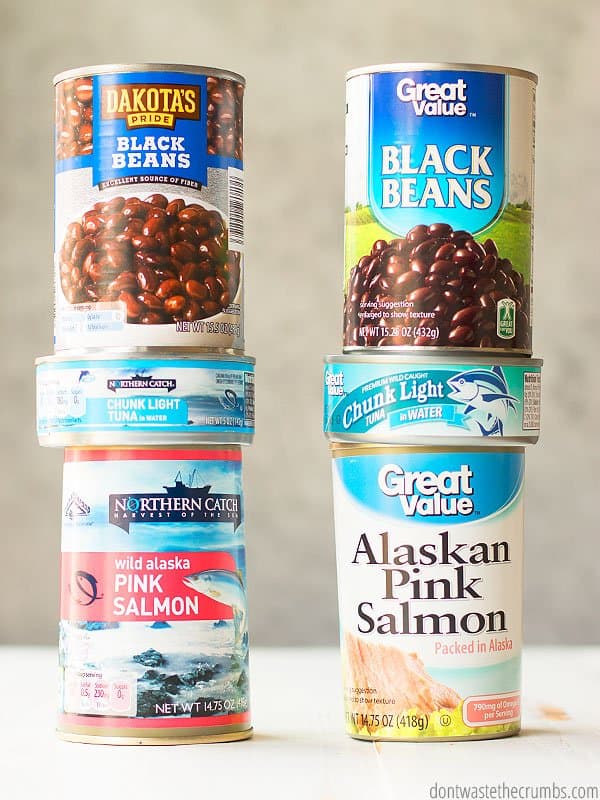Aldi and Trader Joe’s are known for their extensive private-label selections, offering a unique shopping experience where discerning quality can be challenging due to the lack of extensive advertising for many items. While many shoppers have found success with Trader Joe’s offerings, understanding Aldi’s private-label canned goods requires a closer look. This review aims to guide you through the best and worst canned options at Aldi, based on taste, texture, and comparison to other established brands. By tasting a variety of canned items, prepared according to package directions, we can determine which products are worth purchasing and which are best left on the shelf.
Canned Goods That Shine at Aldi
Several canned goods at Aldi stand out for their quality and taste, offering a pleasant surprise for shoppers.
Canned Vegetables: Peas and Corn
Aldi’s canned peas and corn are surprisingly good, rivaling the quality of many national brands. The peas are sweet with a tender texture, and the corn is similarly sweet and succulent. Both are excellent choices for everyday meals, whether served as a side dish or incorporated into recipes. They hold their own in terms of flavor and texture, making them a worthwhile purchase.
Canned Fruits: Peaches and Pineapple Rings
When it comes to canned fruits, Aldi’s sliced peaches and pineapple rings are solid contenders. The peaches are packed in juice, offering a natural sweetness without being overly syrupy. They have a good texture that isn’t mushy. The pineapple rings are also flavorful and firm, suitable for baking or enjoying straight from the can. These options provide a good balance of sweetness and fruit integrity.
Canned Proteins: Tuna and Chicken
Aldi offers several canned tuna and chicken options that are a step above average. The chunk light tuna in water is a good source of protein, with a mild flavor and firm texture. It’s versatile for salads, sandwiches, or casseroles. Similarly, the canned chicken breast is moist and tender, making it a convenient addition to various dishes. These proteins offer good value and quality for pantry staples.
Canned Goods to Approach with Caution
While there are many good options, some canned goods at Aldi may not meet expectations, and shoppers might find better alternatives elsewhere.
Canned Soups: Cream of Mushroom and Tomato
Aldi’s canned cream of mushroom and tomato soups were less impressive. The cream of mushroom soup had a somewhat artificial flavor and a texture that was a bit too thick. The tomato soup, while edible, lacked the rich, robust flavor expected from a quality tomato soup. These are products where brand names or other specialty stores might offer a more satisfying experience.
Canned Beans: Black Beans and Kidney Beans
While canned beans are generally a safe bet, Aldi’s black beans and kidney beans were only average. They were not as flavorful or as tender as some other brands, requiring a bit more seasoning to enhance their taste. While they are perfectly usable for basic cooking needs, those seeking superior flavor and texture might want to explore other options.
Canned Fish: Sardines
Aldi’s canned sardines, while affordable, may not appeal to all palates. The flavor was quite strong, and the texture was softer than some consumers might prefer. For those who enjoy sardines, these might be acceptable, but they are not likely to convert those who are on the fence about this particular canned fish.
Conclusion: Smart Shopping at Aldi
Aldi’s canned goods section offers a mixed bag, with some surprisingly high-quality products and others that are merely adequate. By focusing on items like peas, corn, peaches, pineapple, tuna, and chicken, shoppers can make satisfying choices that offer good value. However, for items like cream soups and certain beans, exploring other brands or stores might yield better results. As with any grocery shopping, personal preference plays a significant role, but this guide provides a starting point for navigating Aldi’s canned offerings to find the best tasting and most delicious options for your next shopping trip.

